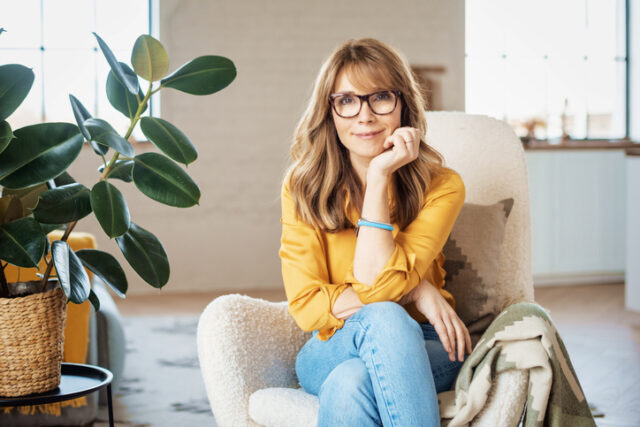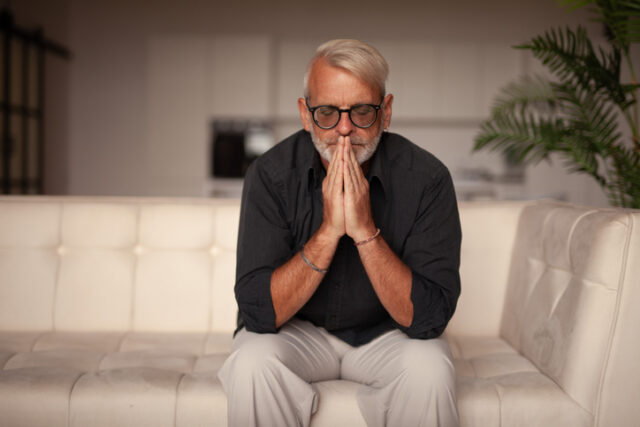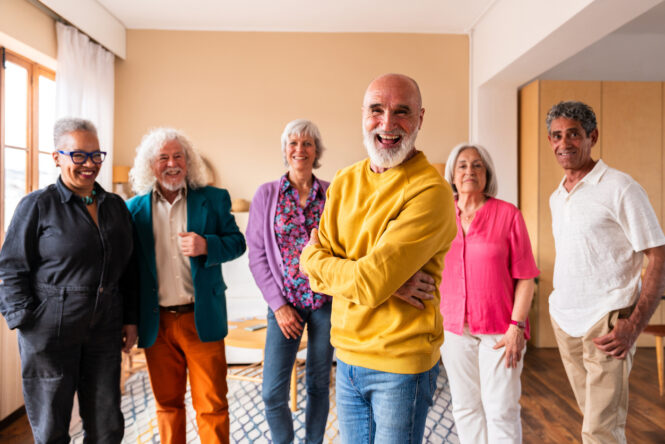There are things you breeze past in your twenties and thirties without a second thought—then one day, somewhere after middle age, you suddenly get it.

It’s not that you’re becoming overly serious or “old.” Instead, it’s that you now realise that small changes can make life smoother, quieter, and a lot more enjoyable. These aren’t massive life overhauls, but subtle changes in how you move through the world. Once you’ve felt the difference they make, there’s no going back. Here are some tiny life changes that only really land after middle age, but once they do, they stick.
1. You stop glorifying being busy.

When you’re younger, being constantly busy can feel like a badge of honour. You fill your schedule with back-to-back plans, side hustles, and errands, thinking that doing more means you’re doing better. Eventually, you start to question whether all that hustle is actually helping, or just wearing you down.
After a certain age, downtime becomes sacred. You start prioritising rest not as a reward, but as a necessary part of life. You learn that being busy isn’t the same as being fulfilled—and suddenly, a quiet weekend with no plans feels like the ultimate luxury.
2. You choose comfort over trends—and love it.

There comes a point when you stop squeezing into uncomfortable shoes just because they look good. You start gravitating towards things that feel right instead of just looking right, and it’s genuinely liberating.
Whether it’s clothing, furniture, or even the way you structure your day, comfort becomes a non-negotiable. You realise you can still look great without sacrificing how you feel, and once you embrace that, shopping and dressing yourself becomes way more fun (and way less painful).
3. You realise sleep is a serious priority.

In your younger years, staying up late and pulling all-nighters might have felt normal, or even impressive. However, after middle age, you finally understand just how crucial good sleep really is for your mood, focus, and general health.
You stop treating sleep like an inconvenience and start protecting it like gold. You get picky about pillows, blackout curtains, and your wind-down routine. And when you wake up actually feeling rested? That’s when you know this one change is worth everything.
4. You start listening to your body more.

You don’t ignore the little aches and twinges anymore. Instead of brushing them off or pushing through, you start noticing patterns and responding to what your body is asking for, whether that’s more movement, more stretching, or more rest.
This awareness doesn’t come from fear; it comes from respect. You’re finally tuned in, not just powering through. And that shift helps you move through life with more ease, less pain, and a whole lot more energy.
5. You stop trying to win every argument.

Somewhere along the way, it hits you: not every debate is worth your energy. You stop needing to prove a point or get the last word just for the sake of being “right.” Peace of mind suddenly feels way more valuable than a verbal victory.
When you choose calm over chaos, your relationships often improve, too. Letting someone else have their say without jumping in feels like a flex. You still stand your ground when it matters, but you don’t need to fight every battle to feel heard.
6. You declutter your space (and your mind).
 Source: Unsplash
Source: Unsplash After years of collecting stuff, you begin to crave simplicity. That’s not because minimalism is trendy, but because clutter starts to feel like noise. You notice how a messy space affects your mood, and how good it feels to let things go.
Decluttering becomes less about getting organised and more about creating room to breathe. Whether it’s a junk drawer or an overbooked calendar, you realise that trimming the excess gives you more energy to focus on what really matters.
7. You value deeper friendships over big social circles.

Gone are the days of trying to be friends with everyone. You start to notice which relationships actually nourish you, and which ones leave you drained. It’s not about cutting people off; it’s about shifting your energy to where it feels most valued.
Having a few people you can truly count on feels far better than dozens of acquaintances. There’s relief in knowing you don’t need a crowd to feel connected. Just a couple of solid friendships can make you feel deeply seen and supported.
8. You start saying “no” without feeling bad about it.

When you’re younger, turning things down can come with guilt or the fear of missing out. But eventually, you realise that saying yes to everything means saying no to your own mental and physical health, and that doesn’t sit right anymore.
So you start setting firmer boundaries without apology. Whether it’s declining plans, skipping events, or not picking up that extra work, saying “no” becomes a powerful act of self-respect. It also frees up space for what truly feels right.
9. You enjoy being alone more than you expected.

Solitude shifts from feeling lonely to feeling restorative. You don’t need background noise or constant plans to feel fulfilled. You learn how peaceful it is to be in your own company, and how much clarity comes from those quiet moments.
Alone time becomes something you look forward to, not something to fill or avoid. Whether it’s a morning walk, an afternoon read, or just sitting in silence, that stillness feels grounding in a way that’s hard to explain until you’ve experienced it.
10. You become more selective with your energy.

You start to notice how certain people, places, or habits either lift you up or wear you down. And instead of pushing through or pretending it’s fine, you start making more conscious choices about where your time and energy go.
This doesn’t mean you cut everything out; it means you get more intentional. You stop doing things out of obligation and start doing them because they truly matter to you. That shift changes everything from your calendar to your mindset.
11. You finally enjoy moving your body just for the sake of it.

Exercise used to be something you “had” to do to stay fit or look a certain way. Now, it’s more about how it makes you feel. Whether it’s yoga, dancing, walking, or stretching, movement becomes less about pressure and more about pleasure.
You’re not chasing aesthetics—you’re chasing energy, mood, and strength. That change in motivation makes it way easier to stay consistent, and it brings a whole new appreciation for what your body can do.
12. You let go of the need to prove anything.

So much of early adulthood is driven by the desire to prove—to parents, bosses, peers, even strangers. However, after middle age, that pressure starts to fade. You realise you don’t have to justify your choices or explain your path to anyone.
There’s peace in knowing you’re doing life your way, even if it doesn’t look impressive to someone else. That quiet confidence grows when you stop living for validation and start living for yourself.
13. You notice small joys more often.

The smell of coffee, a really good song, fresh sheets, a soft breeze; you start paying more attention to these little things, and they hit differently. You stop rushing past them and start soaking them in.
Gratitude doesn’t feel like a forced mindset anymore—it becomes natural. You find happiness in places you used to overlook, and it starts to feel like the good stuff was never that far away after all.
14. You stop waiting for “someday.”

That trip you’ve been meaning to take, the book you’ve wanted to write, the class you keep saying you’ll sign up for. Eventually, you realise that waiting for the “right time” might mean waiting forever.
So you start making moves. Not always big ones, but consistent ones. You don’t need a full plan—you just need to begin. That shift, from waiting to acting, brings a kind of momentum that feels like coming home to yourself.




